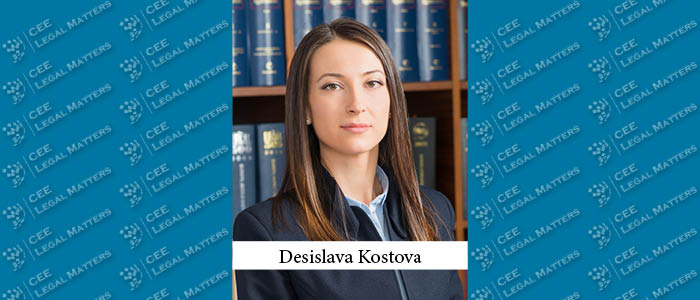The Supreme Court of Cassation of the Republic of Bulgaria recognized under "exceptional circumstances," the right of an active partner in a limited liability company to act as an ad hoc representative. This decision references to Articles 6 and 13 of the European Convention for the Protection of Human Rights and Fundamental Freedoms (ECPHRFF) and the case law of the European Court of Human Rights (ECHR).
Case summary:
"Avtostakla" Ltd. with UIC 130399595, a company incorporated in Republic of Bulgaria, is represented jointly by its two managers, who are also equal partners. After 30 years of working together, one of the managers started engaging in competitive activity and established other companies, which are competitors to "Avtostakla" Ltd., and through a proxy carried out numerous fictitious deals which served to conduct simulative proceedings against "Avtostakla" Ltd. before a private arbitration court - Court of Arbitration at the World Trade Center Arbitration Court Association, in order to create large liabilities of the company and to "drain" its assets through public sales. Meanwhile, the other partner is effectively denied access to the company's registered office and its correspondence. Therefore, it was with the announcement of the public sales of the properties of "Avtostakla" Ltd., - the debtor in the enforcement proceedings, that the partner became aware that the company had been condemned and its properties were being sold by a private bailiff, conducting numerous fictitious deals through a proxy. These deals led to simulative proceedings before the Court of Arbitration at the World Trade Center Arbitration Court Association, creating significant liabilities for "Avtostakla" Ltd. and resulting in public sales of its assets. The other partner, effectively barred from the company's office and correspondence, only learned of these events through public sales notices.
After becoming aware of the proceedings, the partner, as natural person, filed multiple claims against the other partner – for his exclusion from the company due to his competitive actions, as well as for the annulment of 18 arbitral awards with a total value of over EUR 7 500 000.
However, under national law, only the company, involved in the proceedings can legitimtly claim for annulment of arbitral awards against “Avtostakla” Ltd (Article 47 of the International Commercial Arbitration Act (ICAA).
The main issue was whether a partner, also a manager but unable to represent the company alone, could bring claims for annulment when the other manager had no interest in doing so. Bulgarian law requires joint representation by both managers (Art. 30, para. 1 of the Code of Civil Procedure in conjunction with Article 141, para. 2 and paragraph 6 of the Commercial Law). This requirement left the company without protection in case of managerial conflict, as national laws do not allow partners to exercise company rights if the managers fail to act together.
The case law of the Supreme Court of Cassation maintained strict adherence to these representation rules, until recently, consistent in regards to the representation of the limited liability company and the mandatory application of the law, not allowing a partner to exercise the rights of a company to set aside enforceable arbitral awards under any circumstances. This stance shifted following numerous lawsuits filed by the aggrieved partner of "Avtostakla" Ltd. seeking to protect both the company and his interests..
The Supreme Court of Cassation, in several of the cases brought by the partner, has held that Articles 6 and 13 of the ECPHRFF and the case law of the ECHR should be applied.
For the first time, the court held that, in the present case, the allegations of the partner and manager of “Avtostakla” Ltd, who brought the claim, in justification of his procedural legitimacy to bring the complaint, as a partner, along with bringing it in the name and on behalf of the company - were based on the need for a mediated protection of his right of "possession", by protecting the assets of the company in whose capital he had a significant shareholding. The defense is precluded from being exercised by the company itself, through its representative body (when it is jointly represented by its two managers), due to "exceptional circumstances" within the meaning of the ECtHR case law - conflicting interests of “Avtostakla” Ltd. with the interests of the second co-manager and partner. (Established in Ruling № 485/29.02.2024 in pr. comm. case № 1396/2023 of the Supreme Court of Cassation).
It recognized that the partner’s procedural legitimacy to bring claims in the name of the company was justified by the need to protect his "possession" rights via the company's assets. The court acknowledged "exceptional circumstances" where conflicting interests between managers prevented the company from defending its rights. (Ruling № 485/29.02.2024 in pr. comm. case № 1396/2023).
The court further noted that in the cited Ruling that "the ECtHR has had occasion to make it clear that its judgments serve not only to decide the cases brought before it but, more generally, to clarify, protect and develop the rules laid down by the Convention, thereby contributing to bringing States into compliance with the commitments they have entered into as Contracting Parties (Ireland v. the United Kingdom, § 154, 18 January 1978, Series A no. 25, and, more recently, Jeronovi us. v. Latvia [GC], no. 44898/10, § 109, 5 July 2016). The Court has emphasized the role of the Convention as a "constitutional instrument of European public policy" in the field of human rights (Bosphorus Hava Yollari Turizm ve Ticaret Anonim Şirketi v. Ireland [GC], no. 45036/98, § 156, ECHR 2005-VI, and, more recently, N.D. and N.T. v. Spain [GC], nos. 8675/15 and 8697/15, § 110, 13 February 2020). Protocol No. 15 to the Convention incorporates the principle of subsidiarity into the Preamble to the Convention, imposing a shared responsibility between the States Parties and the Court with regard to the protection of human rights, given that domestic authorities and courts must interpret and apply domestic law in a way that gives full effect to the rights and freedoms enshrined in the Convention and its Protocols (Grzęda v. Poland, § 324 , §§ 159-165)."
Thus, the Supreme Court of Cassation amended its until recently consistent practice on the procedural legitimacy. It now recognizes the right of the active partner to be an ad hoc representative and to have the right to defend the rights of the company, as derived from the provision of Art. 137, para. 1, item 8 of the Civil Procedure Code. . In similar cases, the Court has identified other effective domestic remedy under Article 13 of ECHR to provide real protection of the right provided under Article 47 of the ICAA in respect of “Avtostakla” Ltd. For example, in Ruling No. 762/27.03.2024 in cass. comm. case No. 20238002900523 of the Supreme Court of Cassation, it was held that "The national regulation in Article 32 (2) of the Property Act provides that where a common property is used by a decision of the majority of co-owners in a manner detrimental to it, or if a majority cannot be formed, the court shall take the necessary measures and, if necessary, appoint a manager of the common property. The provision of Article 29 of the Civil Procedure Code, on the other hand, regulates the appointment of a special representative in court proceedings where a party is unable or hindered in its ability to form a legally valid will. In both cases, the court provides assistance to ensure the effective protection of recognized rights. In the present case, the application of Article 29 of the Civil Procedure Code appears appropriate in view of the need to protect procedural rights, as well as in view of the fact that the two partners have a parity in the capital and in the ability to influence the decisions of “Avtostakla” Ltd.
Thus, the Supreme Court of Cassation of the Republic of Bulgaria has provided pathway for managers in similar situations as “Avtostakla” Ltd. to secure effective access to justice.
By Desislava Kostova, Senior Associate, Gugushev & Partners, PONTES


